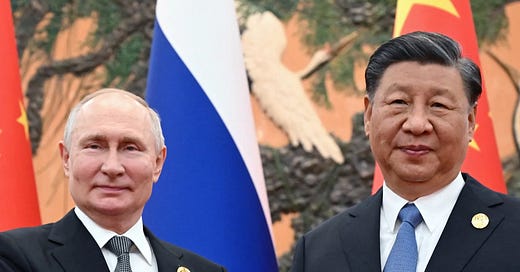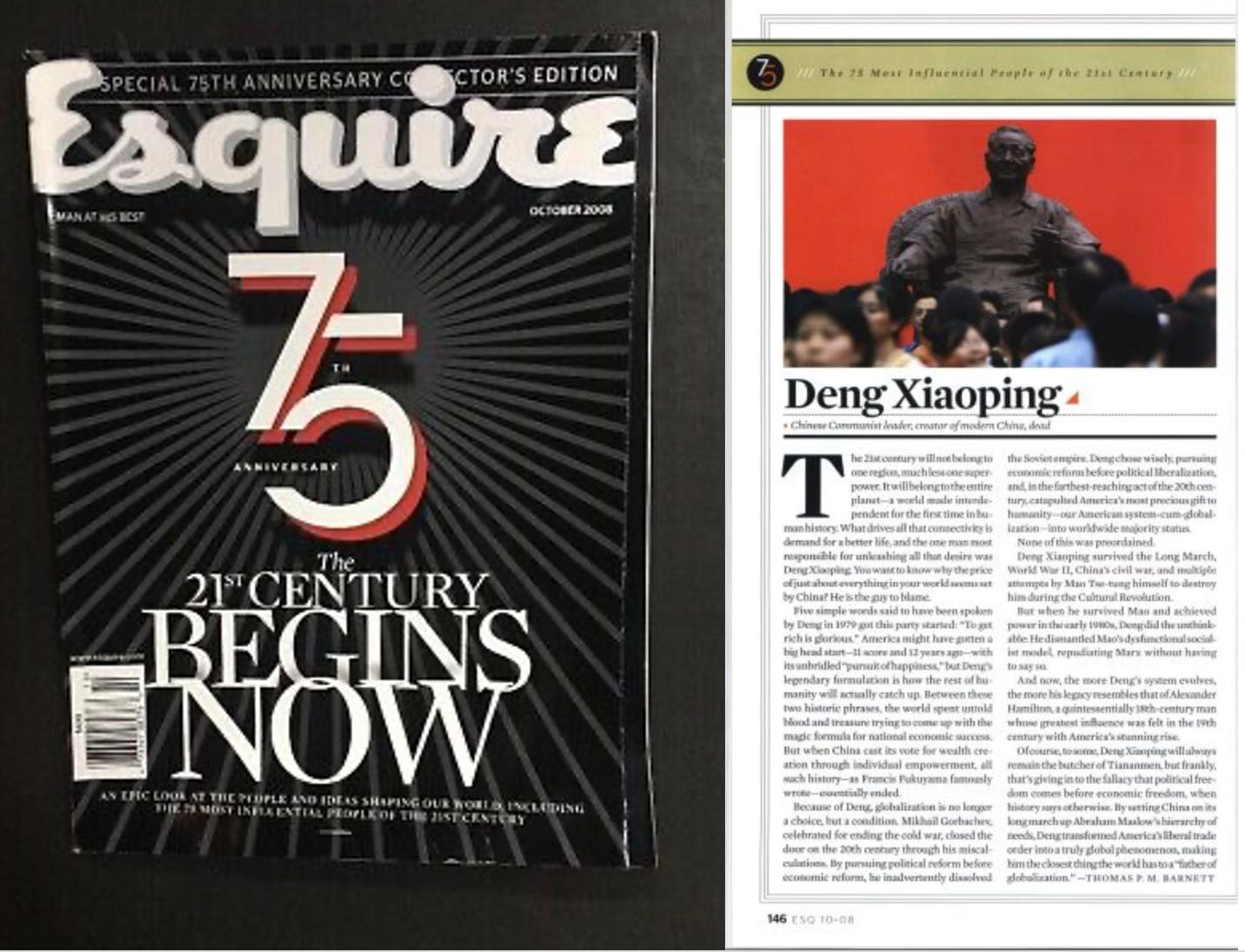Broad framing the combined China/Russia threat
Inevitable leadership changes will largely solve both threat vectors
Think back to what was arguably the biggest decision of the last half of the 20th century: Deng Xiaoping’s embrace of marketization (something I celebrated in an Esquire piece 16 years ago; I dubbed him the most important dead person of the 21st Century) following Mao Zedong’s long and crazy and impoverishing reign in China.
Let me count the ways it bent history:
Pushed America’s decades-long grand strategy of creating and extending an international liberal trade order (at first, just across the West) into global majority status — a tipping point that triggered our recognition of an actual global economy (really, for the first time in human history) and globalization itself.
Culminated America’s similar, decades-long effort to act as the security “glue” of East Asia, encouraging the peaceful rise of numerous economic great powers — a first-time-ever development in that region (Japan, Korea, China, India, etc. all rising or risen without great-power war erupting).
Triggered an explosion in wealth creation that lifted hundreds of millions of people out of poverty (for the first time ever) and set in motion the emergence of a global majority middle class.
Convinced Gorbachev’s crowd in Moscow to attempt similar reforms (albeit focusing first on politics instead of economics — a huge mistake that collapsed the USSR) so as not to be left behind.
Later convinced India to do the same to catch up (a process unfolding now).
This is why I dubbed Deng the single most important world leader of the second half of the 20th century (FDR owns the first half for setting up the framework for US-style globalization’s spread).
Did Deng’s decision create a perfect world without tensions? Nah. But, as I like to say, we’re now living with the best problem-set yet — and that is progress.
Which brings us to today’s China, where the next steps inevitably involve greater political pluralization that achieves the following:
Recognizes the desire for self-rule across the nation’s huge middle class (size of the total US).
Creates enough long-term optimism among the populace to unleash a consumption boom that EVERY outside economic expert is calling for.
Chills the region’s growing military arms race by ALL of China’s neighbors in response to Beijing’s ongoing buildup (now reaching a certain pointlessness in its sheer girth as the world collectively rockets to a Military Singularity in which drones/robots/AI make all those platforms useless) and general belligerent persona.
Chills America’s efforts (largely futile) to contain and/or slow China’s reach for technological advancement (a very necessary development for the nation to avoid the middle-income trap).
Recaptures China’s global luster as an agent of transformative change (versus retrenchment along ideological and authoritarian lines).
Opens the floodgates for new generations of Chinese leaders who are — unlike Cold War baby Xi Jinping (he of the generation emotionally battered by the Cultural Revolution) — ambitious and imaginative and ready to achieve a “soft landing” as one of this century’s quartet of economic superpowers (alongside the US, EU, and rising India).
Keep reading with a 7-day free trial
Subscribe to Thomas P.M. Barnett’s Global Throughlines to keep reading this post and get 7 days of free access to the full post archives.






